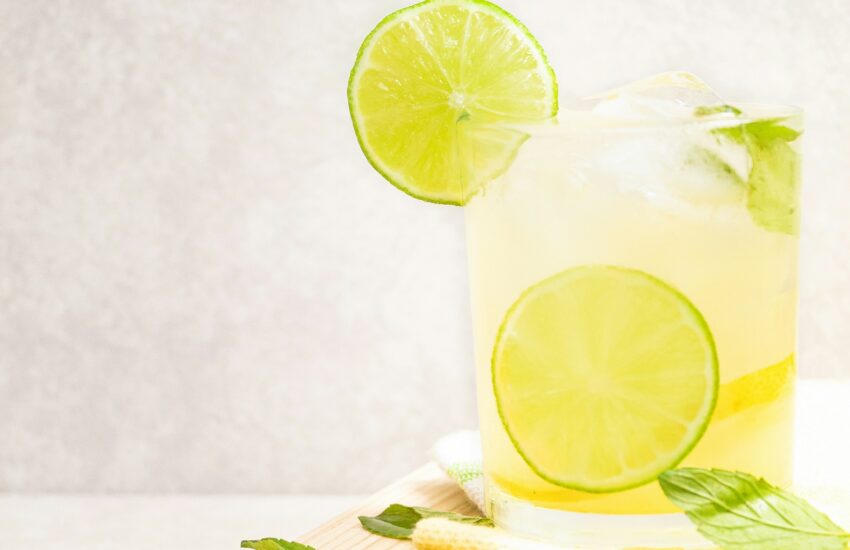Acne is a common skin condition that affects people of all ages, with its prevalence being especially high among teenagers. It manifests as pimples, blackheads, whiteheads, cysts, and sometimes even deep, painful nodules. While acne can be treated with various over-the-counter and prescription medications, many people prefer to use home remedies as a natural alternative. These remedies often focus on using ingredients found in the home, such as herbs, oils, and natural substances, to combat the underlying causes of acne, such as excess oil, bacteria, clogged pores, and inflammation. Mohit Tandon from Burr Ridge will explore a wide range of home remedies to get rid of acne, discussing their effectiveness, application methods, and potential side effects.
1. Understanding Acne and Its Causes
Before diving into home remedies, it’s important to understand the causes of acne. Acne occurs when hair follicles become clogged with oil, dead skin cells, and bacteria. This clogging leads to the formation of pimples, blackheads, and cysts. Common causes of acne include hormonal changes, excess oil production, clogged pores, bacterial infections, and inflammation. Understanding these causes will help you choose the right home remedies to address your specific skin needs. – Mohit Tandon Burr Ridge
1.1 Hormonal Imbalance
Hormones play a significant role in the development of acne. During puberty, menstruation, pregnancy, or when using birth control, hormonal fluctuations can lead to an increase in sebum (skin oil) production, which can clog pores.
1.2 Excessive Oil Production
Sebaceous glands in the skin secrete oil to protect and moisturize the skin. However, excessive oil can clog pores, trapping dirt and bacteria, which leads to acne.
1.3 Bacteria
Propionibacterium acnes, a type of bacteria, is naturally present on the skin. When hair follicles become clogged, this bacteria can multiply rapidly, causing inflammation and the formation of pimples and cysts.
1.4 Diet and Lifestyle
Certain foods, stress, and lack of sleep can also influence the severity of acne. A diet rich in high glycemic index foods, dairy, or processed foods can trigger acne, while stress can cause hormonal changes that exacerbate the condition.
2. Natural Oils for Acne Treatment
Essential oils and natural oils have long been used in skincare for their anti-inflammatory, antibacterial, and healing properties. Using these oils can help reduce the redness, swelling, and infection associated with acne.
2.1 Tea Tree Oil
Tea tree oil is one of the most popular and effective essential oils for acne treatment due to its antimicrobial properties. It helps reduce the bacteria that contribute to acne, thus decreasing inflammation and preventing new breakouts. To use tea tree oil, dilute it with a carrier oil such as jojoba or coconut oil and apply it directly to the affected areas with a cotton ball.
2.2 Lavender Oil
Lavender oil is another essential oil famous for its calming and anti-inflammatory effects. It helps soothe irritated skin and can reduce redness and swelling. Lavender oil also has antibacterial properties that make it effective against acne-causing bacteria.
2.3 Rosemary Oil
Rosemary oil is often used in acne treatments due to its ability to improve circulation, reduce inflammation, and fight bacteria. It is especially useful for acne-prone skin that suffers from blocked pores.
2.4 Coconut Oil
Coconut oil is a popular natural moisturizer with antimicrobial properties that may help reduce acne-causing bacteria. While it is rich in saturated fats, it is highly effective in reducing dryness and irritation, making it a great remedy for those with both acne and dry skin.
2.5 Argan Oil
Rich in vitamin E and antioxidants, argan oil is another effective remedy for acne. It can help balance oil production, soothe inflammation, and hydrate the skin without clogging pores.
3. Herbal Remedies for Acne
Herbal remedies offer a wide variety of natural treatments that can help fight acne. Herbs contain compounds that have healing, anti-inflammatory, and antimicrobial properties, making them suitable for acne treatment.
3.1 Aloe Vera
Aloe vera is a potent anti-inflammatory and antibacterial agent, making it a great remedy for acne-prone skin. Its cooling effect can soothe the skin and reduce the redness associated with acne. Aloe vera gel can be applied directly to the skin or mixed with other ingredients like honey for added antibacterial benefits.
3.2 Green Tea
Green tea is rich in antioxidants, particularly epigallocatechin gallate (EGCG), which has been shown to reduce sebum production and inflammation. Applying green tea extract to the skin can help prevent the buildup of oil and bacteria, while also soothing irritated skin.
3.3 Turmeric
Turmeric is well-known for its anti-inflammatory and antibacterial properties. The active compound curcumin helps to reduce redness and swelling while fighting off the bacteria that cause acne. A turmeric paste made with honey or yogurt can be applied to the skin for its anti-inflammatory benefits.
3.4 Neem
Neem has long been used in traditional medicine for its antimicrobial and anti-inflammatory properties. Neem oil or a paste made from neem leaves can help reduce acne outbreaks, especially for those with severe acne.
3.5 Basil
Basil leaves contain essential oils that have antimicrobial properties. Applying a basil-infused toner or using basil oil can help clear up acne by killing bacteria and reducing inflammation.
4. Using Honey and Other Natural Ingredients for Acne
Honey, yogurt, and other common kitchen ingredients have been found to have anti-inflammatory and antibacterial effects, making them useful for acne treatment.
4.1 Honey
Honey is a natural humectant, meaning it helps retain moisture, and it also has antibacterial and anti-inflammatory properties. Raw honey can be applied directly to the skin to reduce acne-related inflammation and fight bacteria.

4.2 Cinnamon
Cinnamon has antibacterial properties and helps to increase circulation in the skin. A cinnamon and honey mask can be a potent remedy for acne, as it targets both bacteria and inflammation.
4.3 Apple Cider Vinegar
Apple cider vinegar (ACV) has been praised for its ability to balance the skin’s pH and clear out pores. When diluted with water, ACV can be applied as a toner to help fight acne-causing bacteria and reduce inflammation.
4.4 Lemon Juice
Lemon juice is high in vitamin C and citric acid, both of which have antibacterial properties. It can be used to lighten acne scars and prevent breakouts. However, lemon juice should be diluted before application, as it can be too harsh for sensitive skin.
5. Diet and Lifestyle Changes to Support Acne-Free Skin
While topical treatments can help treat acne, making dietary and lifestyle changes can significantly improve skin health in the long term.
5.1 Maintain a Balanced Diet
Eating a diet rich in fruits, vegetables, lean proteins, and whole grains can improve skin health. Foods high in antioxidants, like berries and leafy greens, can reduce inflammation and promote healing.
5.2 Drink Plenty of Water
Staying hydrated helps to flush toxins from the body, which can prevent clogged pores. Drinking at least 8 glasses of water a day can also keep your skin moisturized and support its natural healing process.
5.3 Limit Dairy and High Glycemic Foods
Studies have shown that dairy products and foods with a high glycemic index (like sugary snacks, white bread, and processed foods) can exacerbate acne. Reducing or eliminating these foods from your diet may help improve skin clarity.
5.4 Manage Stress
Basically, Stress can trigger hormonal imbalances that worsen acne. Engaging in stress-reducing activities like yoga, meditation, or regular physical exercise can help manage stress levels and reduce the likelihood of acne flare-ups. – Mohit Tandon Burr Ridge
5.5 Sleep Well
Getting enough sleep (7-9 hours a night) is crucial for skin regeneration. Poor sleep can lead to increased stress and hormonal imbalances, both of which can contribute to acne development.
6. Other Effective Home Remedies for Acne
While oils, herbs, and lifestyle changes are effective, there are several other remedies that can help treat acne and promote healthier skin.
6.1 Exfoliation
Especially, Regular exfoliation can help remove dead skin cells that clog pores. Use a gentle scrub with ingredients like oatmeal, sugar, or coffee grounds to exfoliate the skin without causing irritation.
6.2 Cold Compress
Applying a cold compress to inflamed acne can reduce swelling and redness. Simply wrap an ice cube in a cloth and apply it to the affected area for a few minutes to help soothe the skin.
6.3 Clay Masks
Clay, particularly bentonite clay or French green clay, has been used for centuries to draw out impurities from the skin. Clay masks can help absorb excess oil, cleanse pores, and reduce the appearance of acne.
Conclusion
Incorporating natural home remedies into your skincare routine can significantly reduce the appearance of acne and improve overall skin health. However, it is important to note that results vary from person to person, and consistency is key when using natural treatments. It may take time to see noticeable improvements, and it’s essential to complement these remedies with a healthy diet, proper skincare routine, and lifestyle changes for the best results.
Lastly, In cases of severe or persistent acne, it is advisable to consult with a dermatologist to explore other treatment options. By combining the right home remedies with a holistic approach, you can achieve clearer, healthier skin.
